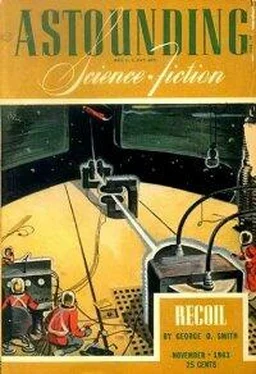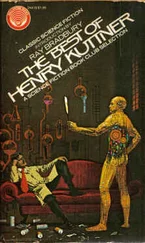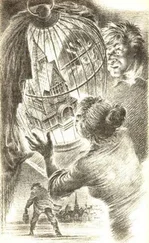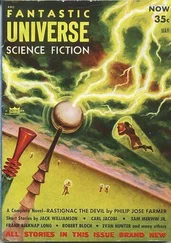Henry Kuttner - Gallegher Plus
Здесь есть возможность читать онлайн «Henry Kuttner - Gallegher Plus» весь текст электронной книги совершенно бесплатно (целиком полную версию без сокращений). В некоторых случаях можно слушать аудио, скачать через торрент в формате fb2 и присутствует краткое содержание. Год выпуска: 1943, Издательство: Street & Smith Publications, Inc., Жанр: Юмористическая фантастика, на английском языке. Описание произведения, (предисловие) а так же отзывы посетителей доступны на портале библиотеки ЛибКат.
- Название:Gallegher Plus
- Автор:
- Издательство:Street & Smith Publications, Inc.
- Жанр:
- Год:1943
- ISBN:нет данных
- Рейтинг книги:5 / 5. Голосов: 1
-
Избранное:Добавить в избранное
- Отзывы:
-
Ваша оценка:
- 100
- 1
- 2
- 3
- 4
- 5
Gallegher Plus: краткое содержание, описание и аннотация
Предлагаем к чтению аннотацию, описание, краткое содержание или предисловие (зависит от того, что написал сам автор книги «Gallegher Plus»). Если вы не нашли необходимую информацию о книге — напишите в комментариях, мы постараемся отыскать её.
Gallegher Plus — читать онлайн бесплатно полную книгу (весь текст) целиком
Ниже представлен текст книги, разбитый по страницам. Система сохранения места последней прочитанной страницы, позволяет с удобством читать онлайн бесплатно книгу «Gallegher Plus», без необходимости каждый раз заново искать на чём Вы остановились. Поставьте закладку, и сможете в любой момент перейти на страницу, на которой закончили чтение.
Интервал:
Закладка:
“Pittsburgh. They told me to come to the club when I got in town.”
“That doesn’t make sense,” Cuff said. “Oh, well. It doesn’t matter. I just cleaned up some loose ends, and I’m celebrating. Through with your flip? Tun! Gin!”
They had gin for G, a horse’s neck for H, and an eye-opener for I. “Now a Jazzbo,” Cuff said with satisfaction. “This is the only bar hi town that has a drink beginning with J. After that I have to start skipping. I dunno any K drinks.”
“Kirchwasser,” Gallegher said absently.
“K—huh? What’s that?” Cuff bellowed at the bartender. “Tun! You g‹n any kirchwasser?”
“Nope,” said the man. “We don’t carry it, Alderman.”
“Then we’ll find somebody who does. You’re a smart guy, pal. Come along with me. I need you.”
Gallegher went obediently. Since Cuff didn’t want to talk about Fatty, it behooved him to win the alderman’s confidence. And the best way to do that was to drink with him. Unfortunately $n alphabetical pub-crawl, with its fantastic mixtures, proved none too easy. Gallegher already had a hangover. And Cuff’s thirst was insatiable.
“L? What’s L?”
“Lachrymae Christi. Or Liebfraumilch.”
“Oh, boy!”
It was a relief to get back to a Martini. After the Orange Blossom Gallegher began to feel dizzy. For R he suggested root beer, but Cuff would have none of that.
“Well, rice wine.”
“Yeah. Rice—hey! We missed N! We gotta start over now from A!”
Gallegher dissuaded the alderman with some trouble, and succeeded only after fascinating Cuff with the exotic name ng ga po. They worked on, through sazeracs, tail-spins, undergrounds, and vodka. W meant whiskey.
“X?”
They looked at each other through alcoholic fogs. Gallegher shrugged and stared around. How had they got into this swanky, well-furnished private clubroom, he wondered. It wasn’t the Uplift, that was certain. Oh, well—
“X?” Cuff insisted. “Don’t fail me now, pal.”
“Extra whiskey,” Gallegher said brilliantly.
“That’s it. Only two left. Y and… and—what comes after Y?”
“Fatty. Remember?”
“Ol’ Fatty Smith,” Cuff said, beginning to laugh immoderately. At least, it sounded like Smith. “Fatty just suits him.”
“What’s his first name?” Gallegher asked.
“Who?”
“Fatty.”
“Never heard of him,” Cuff said, and chuckled. A page boy came over and touched the alderman’s arm.
“Someone to see you, sir. They’re waiting outside.”
“Right. Back hi a minute, pal. Everybody always knows where to find me—’specially here. Don’t go ’way. There’s still Y and… and… and the other one.”
He vanished. Gallegher put down his untasted drink, stood up, swaying slightly, and headed for the lounge. A televisor booth there caught his eye, and, on impulse, he went in and vised his lab.
“Drunk again,” said Narcissus, as the robot’s face appeared on the screen.
“You said it,” Gallegher agreed. “I’m… urp… high as a kite. But I got a clue, anyway.”
“I’d advise you to get a police escort,” the robot said. “Some thugs broke in looking for you, right after you left.”
“S-s-some what? Say that again.”
“Three thugs,” Narcissus repeated patiently. “The leader was a thin, tall man hi a checkered suit with yellow hair and a gold front tooth. The others—”
“I don’t want a description,” Gallegher snarled. “Just tell me what happened?”
“Well, that’s all. They wanted to kidnap you. Then they tried to steal the machine. I chased them out. For a robot, I’m pretty tough.”
“Did they hurt the machine?”
“What about me?” Narcissus demanded plaintively. “I’m much more important than that gadget. Have you no curiosity about my wounds?”
“No,” Gallegher said. “Have you some?”
“Of course not. But you could have demonstrated some slight curiosity—”
“ Did they hurt that machine? ”
“I didn’t let them get near it,” the robot said. “And the hell with you.”
“I’ll ring you back,” Gallegher said. “Right now I need black coffee.”
He beamed off, stood up, and wavered out of the booth. Max Cuff was coming toward him. There were three men following the alderman.
One of them stopped short, his jaw dropping. “Cripes!” he said. “That’s the guy, boss. That’s Gallegher. Is he the one you been drinking with?”
Gallegher tried to focus his eyes. The man swam into clarity. He was a tall, thin chap hi a checkered suit, and he had yellow hair and a gold front tooth.
“Conk him,” Cuff said. “Quick, before he yells. And before anybody else comes in here. Gallegher, huh? Smart guy, huh?”
Gallegher saw something coming at his head, and tried to leap back into the visor booth like a snail retreating into its shell. He failed. Spinning flashes of glaring light dazzled him.
He was conked.
The trouble with this social culture, Gallegher thought dreamily, was that it was suffering both from overgrowth and calcification of the exoderm. A civilization may be likened to a flowerbed. Each individual plant stands for a component part of the culture. Growth is progress. Technology, that long-frustrated daffodil, had had BI concentrate poured on its roots, the result of wars that forced its growth through sheer necessity. But no world is satisfactory unless the parts are equal to the whole.
The daffodil shaded another plant that developed parasitic tendencies. It stopped using its roots. It wound itself around the daffodil, climbing up on its stem and stalks and leaves, and that strangling liana was religion, politics, economics, culture—outmoded forms that changed too slowly, outstripped by the blazing comet of the sciences, riding high in the unlocked skies of this new era. Long ago writers had theorized that in the future—their future—the sociological pattern would be different. In the day of rocketships such illogical mores as watered stock, dirty politics, and gangsters would not exist. But those theorists had not seen clearly enough. They thought of rocketships as vehicles of the far distant future.
Ley landed on the moon before automobiles stopped using carburetors.
The great warfare of the early twentieth century gave a violent impetus to technology, and that growth continued. Unfortunately most of the business of living was based on such matters as man hours and monetary fixed standards. The only parallel was the day of the great bubbles—the Mississippi Bubble and its brothers. It was, finally, a time of chaos, -reorganization, shifting precariously from old standards to new, and a seesaw bouncing vigorously from one extreme to the other. The legal profession had become so complicated that batteries of experts needed Pedersen Calculators and the brain machines of Mechanistra to marshal their farfetched arguments, which went wildly into uncharted realms of symbolic logic and—eventually—pure nonsense. A murderer could get off scot-free provided he didn’t sign a confession. And even if he did, there were ways of discrediting soild, legal proof. Precedents were shibboleths. In that maze of madness, administrators turned to historical solidities—legal precedents—and these were often twisted against them.
Thus it went, all down the line. Later sociology would catch up with technology. It hadn’t, just yet. Economic gambling had reached a pitch never before attained in the history of the world. Geniuses were needed to straighten out the mess. Mutations eventually provided such geniuses, by natural compensation; but a long time was to pass until that satisfactory conclusion had been reached. The man with the best chance for survival, Gallegher had realized by now, was one with a good deal of adaptability and a first-class all-around stock of practical and impractical knowledge, versed in practically everything. In short, in matters vegetable, animal or mineral—
Читать дальшеИнтервал:
Закладка:
Похожие книги на «Gallegher Plus»
Представляем Вашему вниманию похожие книги на «Gallegher Plus» списком для выбора. Мы отобрали схожую по названию и смыслу литературу в надежде предоставить читателям больше вариантов отыскать новые, интересные, ещё непрочитанные произведения.
Обсуждение, отзывы о книге «Gallegher Plus» и просто собственные мнения читателей. Оставьте ваши комментарии, напишите, что Вы думаете о произведении, его смысле или главных героях. Укажите что конкретно понравилось, а что нет, и почему Вы так считаете.









